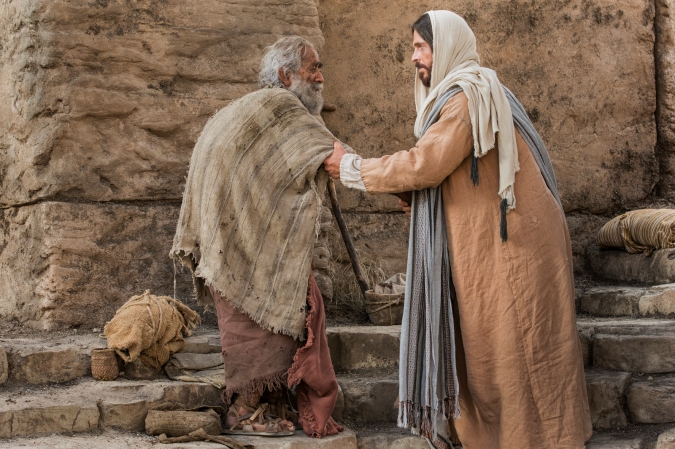“…it is lawful to do well on the Sabbath…”
The Sabbath, it seems to me, is one part blessing, one part opportunity, and one part test.
The blessings are many! Through our Sabbath worship, attitude, and change of pace, including church attendance, our spirits, bodies, and minds are rejuvenated. Honoring the Sabbath keeps us “unspotted from the world.” It also results in the Lord blessing us in ways that are scripturally broad (“I will cause thee to ride upon the high places of the earth” and “the fullness of the earth is yours” and “therefore he giveth you on the sixth day the bread of two days,” for example)—but which become individual and specific as we recognize distinct blessings in our lives. As in many aspects of our covenant relationship with God, those blessings flow generously depending upon the sincerity and contrition of our hearts.
The opportunities are also many! “The Sabbath was made for man!” And: “it is lawful to do well on the Sabbath!” (My exclamation points.) The Sabbath is for doing good. The Savior taught this over and over again as he healed a man with a withered hand, another with “the dropsy,” a woman bent 18 years with infirmity, and, no doubt, others. He taught of “weightier matters,” which certainly place people and worship and principles and attributes over rules. He taught that an ox in a pit must be pulled out and that people who hunger must be fed.
James taught about visiting the widows and fatherless. In fact, the phrase “unspotted from the world” is found twice in the scriptures: once as an introduction to the Savior’s teachings on keeping the Sabbath in D&C 59 and also connected to James’s teachings about “pure” and “undefiled” religion. Clearly the Sabbath is for serving others and is an opportunity to give of ourselves, typically in quiet ways, to lifting, building, encouraging—and maybe even helping heal—others. True Sabbath worship consists of more do’s than don’ts.
The Sabbath is also a test—a test of our hearts. The Sabbath might be made for man, but it was given as a “sign” and a “covenant” and is about our relationship with God. Of the ten commandments Moses received on Sinai, the first four specifically refer to our worshipping and respecting God. The fourth of those is “Remember the Sabbath.” That probably means remembering more than that the day of the week is Sunday and that that’s the day we’re supposed to go to church. Remembering the Sabbath might mean remembering the Savior, remembering God’s love, remembering that He provides for us, remembering His mercy, and remembering to have grateful hearts. It might mean remembering that our hearts should be broken and our spirits contrite. It definitely means worshipping and demonstrating that we “have no other gods before [Him].”
Keeping (or honoring or remembering) the Sabbath is yet another way to live after the manner of real happiness. Lasting and meaningful joy is found neither in Super Bowl games, Super Bowl outcomes, Super Bowl commercials, nor in Super Bowl parties. Nor is it found in demonstrations of isolated piety or in sleeping all day. Joy and happiness are found in placing God first, knowing that we sincerely strive to place Him first, knowing that He knows that we strive to place Him first, and in serving Him by serving our neighbors: family, friends, and strangers. May we seize the day.

